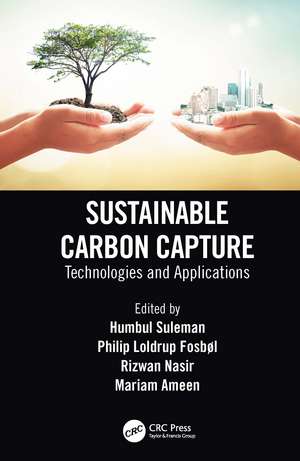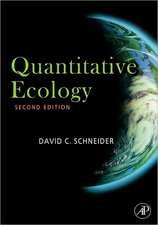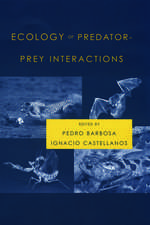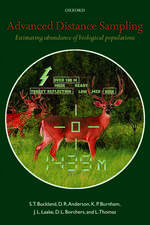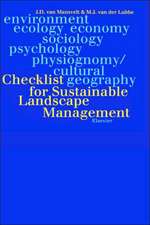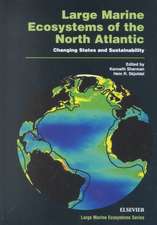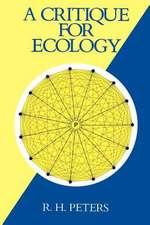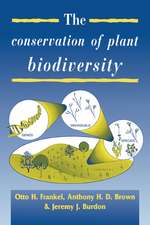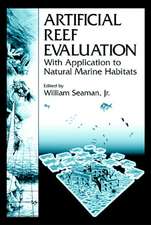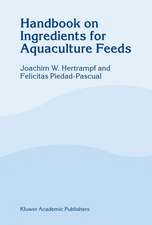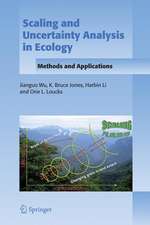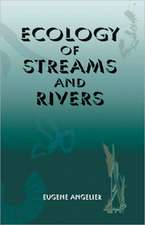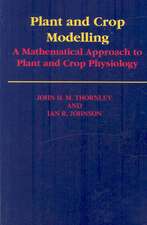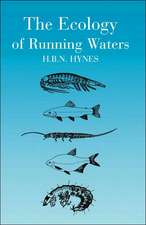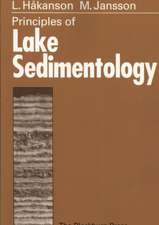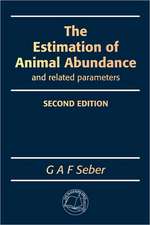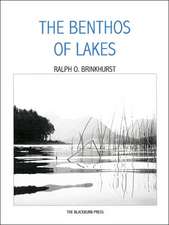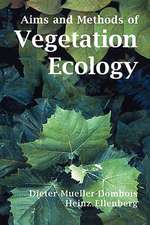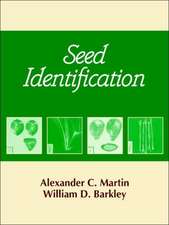Sustainable Carbon Capture: Technologies and Applications
Editat de Humbul Suleman, Philip Loldrup Fosbøl, Rizwan Nasir, Mariam Ameenen Limba Engleză Paperback – 27 mai 2024
| Toate formatele și edițiile | Preț | Express |
|---|---|---|
| Paperback (1) | 441.62 lei 6-8 săpt. | +217.28 lei 4-10 zile |
| CRC Press – 27 mai 2024 | 441.62 lei 6-8 săpt. | +217.28 lei 4-10 zile |
| Hardback (1) | 901.35 lei 6-8 săpt. | |
| CRC Press – 17 feb 2022 | 901.35 lei 6-8 săpt. |
Preț: 441.62 lei
Nou
Puncte Express: 662
Preț estimativ în valută:
84.52€ • 87.91$ • 69.77£
84.52€ • 87.91$ • 69.77£
Carte tipărită la comandă
Livrare economică 15-29 aprilie
Livrare express 08-14 martie pentru 227.27 lei
Preluare comenzi: 021 569.72.76
Specificații
ISBN-13: 9780367755157
ISBN-10: 0367755157
Pagini: 382
Ilustrații: 206
Dimensiuni: 156 x 234 x 24 mm
Greutate: 0.58 kg
Ediția:1
Editura: CRC Press
Colecția CRC Press
Locul publicării:Boca Raton, United States
ISBN-10: 0367755157
Pagini: 382
Ilustrații: 206
Dimensiuni: 156 x 234 x 24 mm
Greutate: 0.58 kg
Ediția:1
Editura: CRC Press
Colecția CRC Press
Locul publicării:Boca Raton, United States
Public țintă
Academic, Postgraduate, Professional, Professional Practice & Development, and Undergraduate AdvancedCuprins
Chapter 1 Introduction to sustainable carbon capture
Chapter 2 Reactive chemical absorption of co2 by organic molecules
Chapter 3 Ionic liquids in carbon capture
Chapter 4 Gas hydrates for co2 capture
Chapter 5 Sustainable metal-organic framework technologies for co2 capture
Chapter 6 Novel co2 separation membranes
Chapter 7 Cryogenic co2 capture
Chapter 8 Bioenergy and biofuels with carbon capture
Chapter 9 Blue/bio-hydrogen and carbon capture
Chapter 10 Improvements in process design, simulation, and control
Chapter 11 Special case studies in sustainable carbon capture
Chapter 12 Modelling the socio-economic impacts of carbon capture and storage deployment – current practices and pathways forward
Chapter 13 Emerging technologies for sustainable carbon capture
Chapter 2 Reactive chemical absorption of co2 by organic molecules
Chapter 3 Ionic liquids in carbon capture
Chapter 4 Gas hydrates for co2 capture
Chapter 5 Sustainable metal-organic framework technologies for co2 capture
Chapter 6 Novel co2 separation membranes
Chapter 7 Cryogenic co2 capture
Chapter 8 Bioenergy and biofuels with carbon capture
Chapter 9 Blue/bio-hydrogen and carbon capture
Chapter 10 Improvements in process design, simulation, and control
Chapter 11 Special case studies in sustainable carbon capture
Chapter 12 Modelling the socio-economic impacts of carbon capture and storage deployment – current practices and pathways forward
Chapter 13 Emerging technologies for sustainable carbon capture
Recenzii
Sustainable Carbon Capture "is an excellent introduction to CO2 capture technologies that will be of interest to those new to this field of research and to students studying energy related programmes." In particular, I am "intrigued" by the discussion of 'Iconic Liquids in Carbon Capture' in Chapter 3. "The coverage is comprehensive with over 350 references," and "is essential reading to someone new in the field." Chapter 9 covers 'Blue/Bio-Hydrogen and Carbon Capture', which is "a very much debated area in terms of whether or not it is a sustainable approach," making this text "useful in the teaching of graduate degree courses."
- Peter Styring, Professor of Chemical Engineering and Chemistry, and Director of the UK Centre for Carbon Dioxide Utilization at the University of Sheffield, UK
- Peter Styring, Professor of Chemical Engineering and Chemistry, and Director of the UK Centre for Carbon Dioxide Utilization at the University of Sheffield, UK
Notă biografică
Humbul Suleman is a lecturer in chemical engineering at Teesside University, UK. He is also a member of the Hydrogen Economy and Decarbonisation Technologies group and Centre for Sustainability at the university. He is an active member of the UK Carbon Capture and Storage Research Centre (UKCCSRC) and has delivered invited lectures on carbon capture in many universities. Humbul is also involved in knowledge sharing and professional development activities with the Institution of Chemical Engineers UK (IChemE), Marie-Curie Alumni Association (MCAA), and The Research Council of Oman (TRC).
Philip Loldrup Fosbøl is an associate professor in the Centre for Energy Resources Engineering at the Department of Chemical and Biochemical Engineering, Technical University of Denmark, where he currently leads the Carbon Capture and Bioenergy research. He works on industrial funded projects in collaboration with industrial partners in Denmark and in Europe interested in CO2 capture, biogas upgrading, CO2 conversion, and electrochemical gas cleaning applications
Rizwan Nasir is an assistant professor in the department of chemical engineering at the University of Jeddah, Saudi Arabia. He is a member of the European Membrane Society (EMS), International Association of Engineers (IAENG), and the Society of Chemical Industry (SCI). He has authored and co-authored thirty-three journal and proceeding papers and three book chapters. He has one filed patent with Intellectual Property Cooperation of Malaysia (MyIPO).
Mariam Ameen is a research fellow in the Department of Chemical and Environmental Engineering, School of Engineering, STEM College at RMIT University, City Campus, Australia. She is a member of the World Society of Sustainable Energy Technologies (WSSET), Society of Chemical Industry (SCI), and International Society of Engineering Science and Technology (ISEST). She is involved specifically in thermochemical conversion of biomass to liquid and gaseous fuels in the domain of green technology, energy, and environmental research. She has authored and co-authored journal articles, book chapters, and proceeding papers in peer-reviewed journals.
Philip Loldrup Fosbøl is an associate professor in the Centre for Energy Resources Engineering at the Department of Chemical and Biochemical Engineering, Technical University of Denmark, where he currently leads the Carbon Capture and Bioenergy research. He works on industrial funded projects in collaboration with industrial partners in Denmark and in Europe interested in CO2 capture, biogas upgrading, CO2 conversion, and electrochemical gas cleaning applications
Rizwan Nasir is an assistant professor in the department of chemical engineering at the University of Jeddah, Saudi Arabia. He is a member of the European Membrane Society (EMS), International Association of Engineers (IAENG), and the Society of Chemical Industry (SCI). He has authored and co-authored thirty-three journal and proceeding papers and three book chapters. He has one filed patent with Intellectual Property Cooperation of Malaysia (MyIPO).
Mariam Ameen is a research fellow in the Department of Chemical and Environmental Engineering, School of Engineering, STEM College at RMIT University, City Campus, Australia. She is a member of the World Society of Sustainable Energy Technologies (WSSET), Society of Chemical Industry (SCI), and International Society of Engineering Science and Technology (ISEST). She is involved specifically in thermochemical conversion of biomass to liquid and gaseous fuels in the domain of green technology, energy, and environmental research. She has authored and co-authored journal articles, book chapters, and proceeding papers in peer-reviewed journals.
Descriere
A comprehensive resource on different aspects of sustainable carbon capture technologies including recent process developments, environmentally friendly methods and roadmaps for implementations. Discusses also the socio-economic and policy aspects of carbon capture and the challenges, opportunities, and incentives for change in industry and policy.
